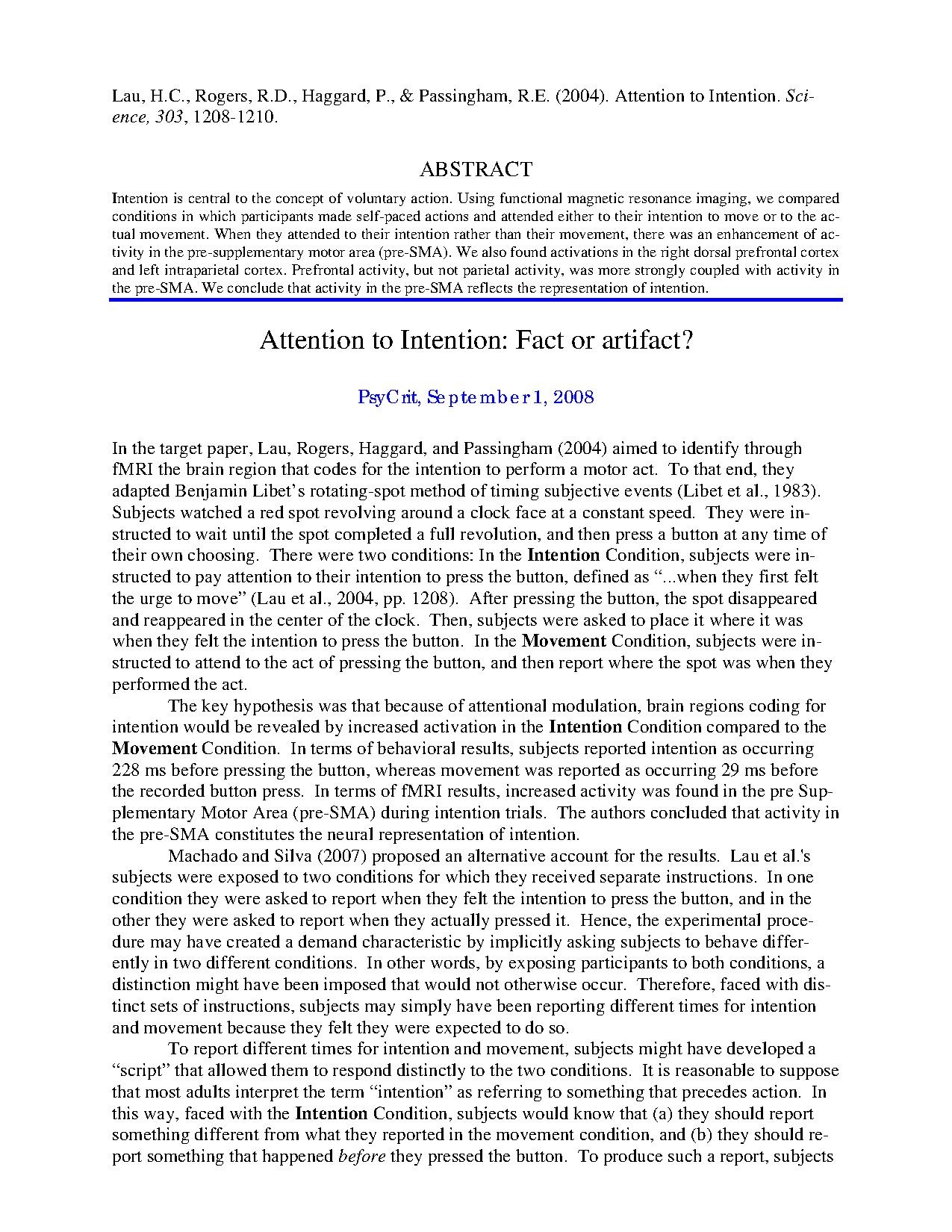Is attention to Intention Fact or artifact
- Title: Attention to Intention: Fact or artifact?
- Author(s): André Marques-Smith, Armando Machado
- Date: 1 September 2008
- Keyname: 2008-09-01-Marques-Smith
- Responds to: Attention to Intention
- Lead-in: Lau et al. (2004) aimed to identify through fMRI the brain region that codes for the intention to perform a motor act, and concluded that the pre-Supplementary Motor Area is where this happens. Machado and Silva’s account (2007) for these results is similar to previous attempts (Bridgeman, 1985; Gomes, 2002) to interpret Libet’s original data (Libet et al., 1983). To the extent of our knowledge, however, such accounts have never been subjected to empirical test. Our objective with this paper was to provide such a test.
no responses found
Full Text
... more about "Is attention to Intention Fact or artifact"
Lau et al. (2004) aimed to identify throug … Lau et al. (2004) aimed to identify through fMRI the brain region that codes for the intention to perform a motor act, and concluded that the pre-Supplementary Motor Area is where this happens. Machado and Silva’s account (2007) for these results is similar to previous attempts (Bridgeman, 1985; Gomes, 2002) to interpret Libet’s original data (Libet et al., 1983). To the extent of our knowledge, however, such accounts have never been subjected to empirical test. Our objective with this paper was to provide such a test.ith this paper was to provide such a test. +
Date"Date" is a type and predefined property provided by Semantic MediaWiki to represent date values.
September 1, 2008 +
